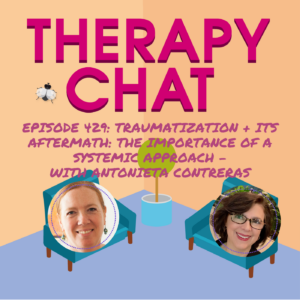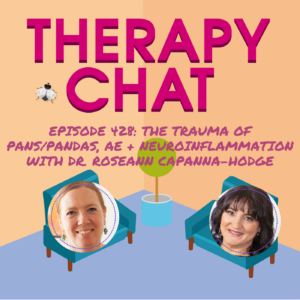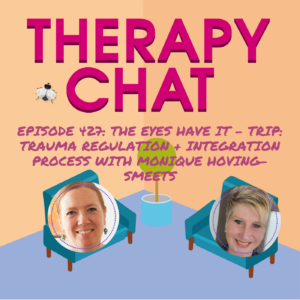Powered by RedCircle
Welcome back to Therapy Chat! This week’s episode is replay of a fascinating conversation with someone who needs no introduction. Dr. Dan Siegel is this week’s guest, and he explains the concept of interpersonal neurobiology, the nature of the mind, integration and “Mwe”. Personally, I think a “Mwe” consciousness is more crucial than ever right now.
He shares his story of becoming interested in the brain and the mind beginning in college, and continuing through his medical school training. He explains his disappointment at discovering in medical school in the late 1980’s that there did not seem to be a science of the mind that psychiatry was using to inform mental health work. He wanted to understand both how the body functions and how our mental lives play a part in keeping us alive.
He explains that interpersonal neurobiology is not a branch of neurobiology, but a framework combining many disciplines including the mental health fields of psychology, psychiatry, counseling, social work, as well as sociology, philosophy, quantum physics, math and others to answer the question “what is the mind?” He explains that he has interviewed over 100,000 people and none of them had ever had any training in what the mind is, which is a real gap in knowledge considering that we in the mental health field are working in the mind. That is what our work is.
He tells us that the mind is where the self comes from; then discusses what the mind is, why it exists, where is it, what’s its function. Dan argues we need to understand the mind to understand all of these questions. He discusses this in depth in his new book, Mind: A Journey to the Heart of Being Human, which is coming out in Fall of 2016.
He notes that the field called Philosophy of mind discourages asking what is the mind. Psychiatry doesn’t have a definition of the mind. Psychology doesn’t have a definition and says it’s a useful placeholder. What is a healthy mind? What’s a healthy thought? Some topics Dan discusses in this episode:
- Mind is not only emotions in this definition. It includes emotions, feelings, anything you can be subjectively aware of.
- In Dan’s definition, consciousness, subjective experience and information processing are the 3 parts of the mind.
- He talks about how he noticed that what we call mental health disorders fit into a pattern of chaos and rigidity. In probability theory of math there was an area of study which related to this which states that a complex system has three characteristics: It’s open to influences from outside of self; capable of being chaotic and it’s non-linear.
- It’s a self organizing, embodied and relational process. This answer comes from math. He explains that in mental health, integration defines health.
- He states that the best definition of mental health is that the system is Flexible, Adaptive, Coherent, Energized and Stable (FACES).
- Where attention goes, neural firing flows, neural connection grows
Dan talks about how therapists can use these concepts to help clients live happier and more fulfilling lives, not just lives of being free from mental health symptoms. We had a very thought-provoking discussion and I hope you enjoyed it as much as I did.
Resources
Norton Series on Interpersonal Neurobiology
Mind: A Journey to the Heart of Being Human
Thank you to our sponsors!
Thank you to TherapyNotes for sponsoring this week’s episode! TherapyNotes makes billing, scheduling, notetaking, and telehealth incredibly easy. And now, for all you prescribers out there, TherapyNotes is proudly introducing E-prescribe!
Find out what more than 100,000 mental health professionals already know, and try TherapyNotes for 2 months, absolutely free.
Try it today with no strings attached, and see why everyone is switching to TherapyNotes, now featuring E-prescribe. Use promo code “chat” at www.therapynotes.com to receive 2 FREE months of TherapyNotes!
This episode is also sponsored by Trauma Therapist Network. Learn about trauma, connect with resources and find a trauma therapist near you at www.traumatherapistnetwork.com. We believe that trauma is real, healing is possible and help is available.
Therapists, registration is opening for Trauma Therapist Network membership. Join a compassionate and skilled group of trauma therapists for weekly calls focused on Self Care, Case Consultation, Q&A and Training and get a beautiful therapist directory listing to help clients find your practice and learn about how you work.
Sign up here: https://traumatherapistnetwork.com/register! Hurry, time is running out!
Podcast produced by Pete Bailey – https://petebailey.net/audio




